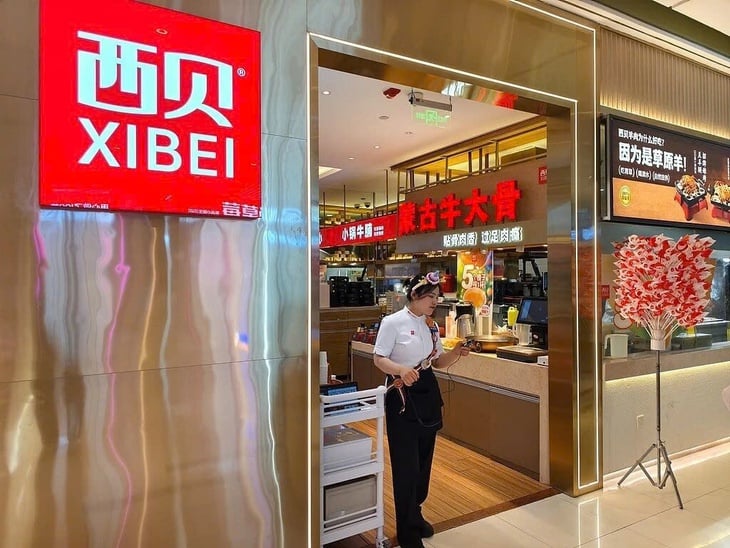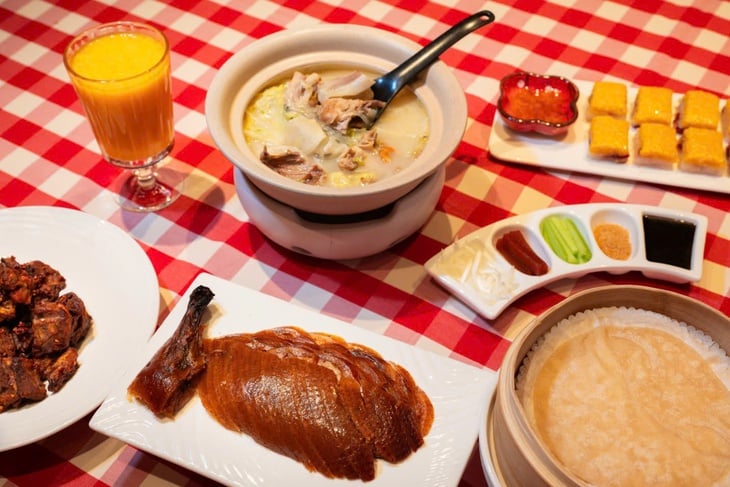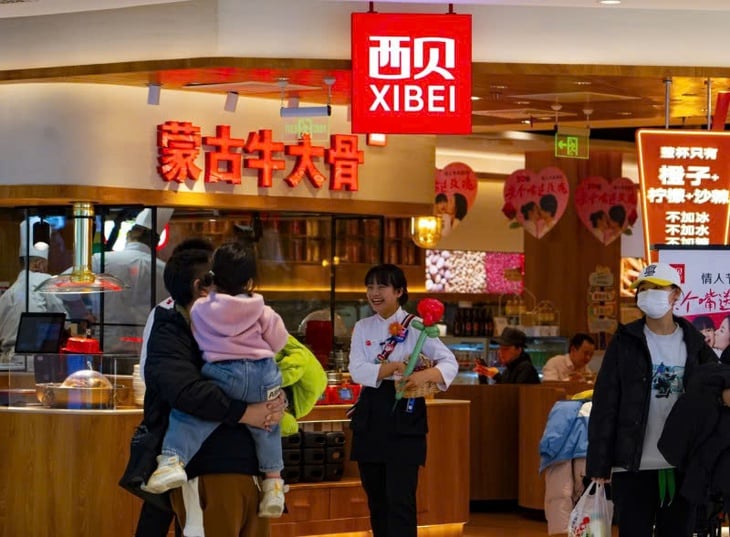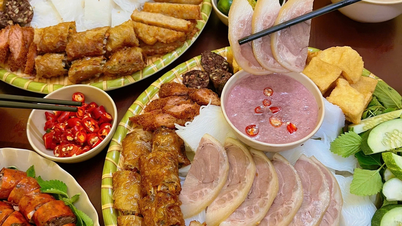
The scandal of the Tay Boi restaurant chain raises questions about the transparency of the modern culinary industry - Photo:
Although nearly a month has passed, the Chinese public is still shocked by the scandal of the famous Tay Boi restaurant chain.
Originating from a content creator's accusation of using processed foods, the story quickly attracted the attention of millions of internet users and major businesses in the industry.
According to QQ , the tense developments that followed and the heavy economic damage raised questions about the future of Tay Boi and the entire Chinese food industry.
Panorama of the 'processed food' scandal
The incident began with a post on September 10 by La Vinh Hao - a businessman and famous KOL on the internet - who suddenly posted on Weibo that he had just had a meal at Tay Boi and discovered that "almost all the dishes were pre-made, and the prices were too expensive".
He called it a "terrible experience" and even asked chemists and food technologists to find a way to check whether the food was pre-cooked or freshly cooked, causing a wave of controversy to explode on social networks.
Under pressure from public opinion, the founder of the Tay Boi Gia Quoc Long chain denied that Tay Boi used any pre-processed food and announced that he would sue Law Vinh Hao for defaming the brand.

Founder of the Tay Boi Gia Quoc Long chain - Photo: Weibo
At the same time, some netizens started posting pictures of packaging of some dishes such as "sour pepper chicken" or "beef stew rice" with printed packaging labels. In response, Tay Boi admitted that these were products of a subsidiary brand that had ceased operations since the beginning of the year, and that the inventory had been sold out since April.
On September 12, Tay Boi posted a "Letter to Customers" on Weibo, publicly revealing 13 detailed food preparation procedures and inviting customers to directly visit the restaurant's kitchen.
That same evening, Law Yonghao announced that he would livestream to "clear things up". He affirmed that he had no intention of taking down the Xibei restaurant, but only wanted to take this opportunity to promote greater transparency in the Chinese food industry and protect consumers' right to know.

Attractive dishes from Tay Boi restaurant - Photo: NF News
Through a survey of Tay Boi's kitchen, many media outlets discovered that the ingredients used in the dishes were frozen and stored for a long time, such as grilled fish with scallions made from frozen fish that could be stored for up to 18 months, or the beef sauce used for the millet noodles was also frozen.
Faced with escalating controversy and major media outlets getting involved, on September 15, Tay Boi restaurant issued an apology letter, pledging to adjust its processing procedures, moving many stages from the central kitchen to direct processing at the store.
The Challenging Future of Tay Boi
Immediately after the scandal broke out, the negative impact on Tay Boi was very obvious. According to Mr. Gia Quoc Long, on September 10 and 11 alone, the daily revenue of the store system decreased by 70%.
Stores in big cities were particularly hard hit, with many places falling into disrepair and customers disappearing due to loss of confidence caused by negative information spreading on social networks.
The brand reputation was also seriously damaged. Tay Boi is famous for its fresh and delicious dishes, friendly service style and especially targeting family customers who pay attention to health and food safety.

Tay Boi's main customer base is middle-class families who focus on health - Photo: NF News
However, the image of "ready-made food" is associated with misunderstandings about the use of additives, preservatives, and non-transparent technology, causing distrust, especially among loyal customers with high spending levels and high quality requirements.
Many major media agencies in China also spoke out about the Tay Boi incident.
The People's Daily on Weibo published an article titled "Comments from the People" arguing that the real challenge of processed foods lies not in technology, but in how to build consumer trust.
Xinhua also carried a commentary titled "I don't mind you eating processed food, I just worry you won't tell me", emphasizing that behind the debates are consumers' concerns about the right to know and the desire to improve the quality of their food.

The Tay Boi scandal shows that what customers need most is transparency and respect - Photo: NF News
QQ said the Xi Bei scandal was not simply about whether or not to use processed foods, but about transparency and respect for customers. Consumers are willing to accept convenience, but not to be "hidden" from the truth or to pay high prices for unworthy products.
This event is a great lesson for the entire culinary industry about changing management thinking, valuing honesty and transparency, as well as improving crisis handling skills in the age of social networks and rapid information.
Xi Bei started from a small shop in Inner Mongolia in 1988, after 37 years of development it has become one of the most prominent Northwest culinary brands in China.
In 2023, this restaurant chain welcomed more than 37.66 million customers, achieving revenue of more than 6.2 billion yuan.
After a period of the F&B market showing signs of "cooling down" in 2024, entering 2025, Tay Boi still maintains its impressive appeal. In the first 6 months of 2025, data from Jike shows that Tay Boi restaurants welcomed more than 34 million visitors, ranking among the leading groups of similar F&B chains in China.
Source: https://tuoitre.vn/bai-hoc-tu-be-boi-cua-thuong-hieu-am-thuc-tay-bac-noi-bat-nhat-trung-quoc-20251013132150451.htm


![[Photo] Prime Minister Pham Minh Chinh receives President of Cuba's Latin American News Agency](/_next/image?url=https%3A%2F%2Fvphoto.vietnam.vn%2Fthumb%2F1200x675%2Fvietnam%2Fresource%2FIMAGE%2F2025%2F12%2F01%2F1764569497815_dsc-2890-jpg.webp&w=3840&q=75)










































































































Comment (0)